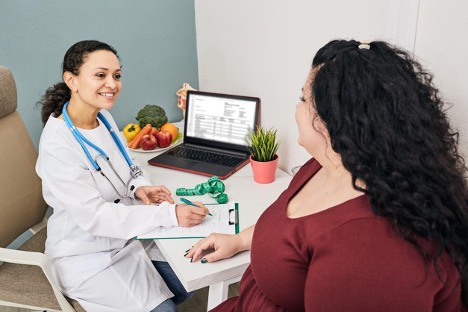
You may have heard people talk about non-alcoholic fatty liver disease (NAFLD), which has become increasingly common, affecting an estimated 24% of adults. Can fatty liver cause cancer? If you are unsure about NAFLD and the potential link between fatty liver and liver cancer, you are not alone.
NAFLD is a disease caused by excess fat accumulation in the liver in patients who drink little to no alcohol. For most patients, non-alcoholic fatty liver disease is a benign condition that does not lead to any long-term liver damage. Can fatty liver cause cancer? In some cases, NAFLD can cause liver inflammation (NASH), leading to cirrhosis, liver failure, and primary liver cancer.
Can fatty liver cause cancer? Learn about non-alcoholic fatty liver disease: risks and complications. Educate yourself on this prevalent condition. Discover NAFLD overview, signs, cancer link, and risk reduction steps.
Unfortunately, NAFLD often does not cause any symptoms. However, in some cases, patients may present with fatigue or pain in the upper right quadrant of their abdomen. Fatty liver disease can be hard to diagnose as it often remains symptomless until complications arise, like NASH or cirrhosis. Symptoms that can indicate serious liver diseases such as NASH, cirrhosis, or liver failure include:
While non-alcoholic fatty liver disease often does not cause symptoms, your doctor may test for fatty liver disease if you are considered at risk. Common risk factors for fatty liver disease include obesity, diabetes, hypertension, dyslipidemia, metabolic syndrome, and certain medications.
Since NAFLD is often asymptomatic until it leads to serious complications, regular annual check-ups with your doctor for physical examinations and blood work are crucial. Blood tests are essential for detecting NAFLD, as elevated liver enzymes may indicate the presence of fatty liver. If your liver enzymes are high, your doctor will likely use imaging tests such as ultrasounds and CT scans to rule out other conditions and confirm a diagnosis of NAFLD.
No approved drugs for NAFLD, but trials are ongoing. The primary treatment for non-alcoholic fatty liver disease and NASH is lifestyle changes to help you lose weight. Moreover, a healthy diet and regular exercise can prevent and even reverse liver damage.
Lowering cholesterol, regulating blood sugar, and losing weight can reduce NAFLD complications. Consult your doctor about medication impacts on liver health.
Non-alcoholic fatty liver disease (NAFLD) can lead to liver cancer, prompting curiosity about the connection between the two. Obesity, metabolic syndrome, and diabetes greatly raise the risk of liver cancer in people with NAFLD, especially when these conditions develop early in life.
The most common type of liver cancer is hepatocellular carcinoma (HCC), comprising about 75% of cases. NAFLD is one of the main risk factors for developing this form of cancer, and due to rising rates of NAFLD, liver cancer is now the third leading cause of cancer death, with liver cancer deaths doubling since 1980.
Considering that NAFLD is one of the biggest risk factors for developing liver cancer, you must consider making lifestyle changes to reduce your risk of developing NAFLD.
While NAFLD is becoming more common in the US, you can lower your risk through simple steps. Being overweight or obese is a significant risk factor for NAFLD. To reduce your risk and improve your health, follow a diet and exercise plan for weight loss. Exercise cut calories, limit alcohol, and eat plenty of fruits and vegetables to prevent fatty liver disease.
Non-alcoholic fatty liver disease is a growing US epidemic that raises the risk of cirrhosis and liver cancer. Therefore, discuss your NAFLD risk with your doctor, undergo liver tests, and take preventive measures to avoid liver disease.
Feel free to contact us for information on lifestyle changes to promote a healthy life and reduce your risk of NAFLD.
For Your Visit
Emmons Ave – Main Office
P: 718-368-2960
F: 718-368-2249
2211 Emmons Ave
Brooklyn, NY 11235
Mon – Fri: 9:00AM – 6:00PM
Sat Closed
Sun: 10:00AM – 5:00PM
Greater NY Endoscopy Surgical Center
P: 718-954-3535
2211 Emmons Ave
Brooklyn, NY 11235
Open 7 days a week
Bay Ridge
P: 718-833-5050
370 Bay Ridge Parkway
Brooklyn, NY 11209
Brighton
P: 718-854-5100
2952 Brighton 3rd Street
Suite 102
Brooklyn, NY 11235
McDonald Ave
P: 718-833-5050
446 McDonald Ave
Brooklyn, NY 11218-2212
Bay Parkway
P: 718-615-6400
6010 Bay Parkway Suite 801 Brooklyn, NY 11204
© All Rights Reserved